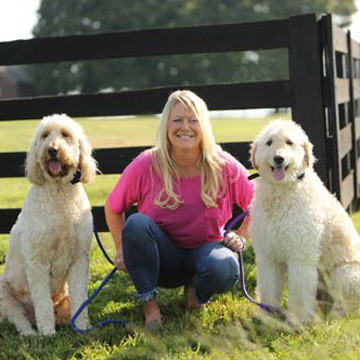 Morristown, TN
Morristown, TN
You’ve probably noticed your dog eating grass at some point. It’s a common behavior but may leave you wondering why dogs eat grass and if it is safe for them. So today on the blog, we share five reasons your dog eats grass so that you’ll know if it is nothing to worry about or warrants a trip to the vet.
The taste
Dogs are naturally curious by nature, especially when it comes to taste and texture, hence chewed up shoes or other items around your house. Some dogs may eat grass out of curiosity and others may enjoy the taste of it. In some cases, dogs may develop a habit of eating grass.
Boredom
Dogs tend to get bored easily, which is no surprise that you may come home to a mess and a trail of destruction left behind by your beloved pup. Therefore, some dogs eat grass to entertain themselves, especially if your dog spends a lot of time outdoors alone. Occasionally eating grass usually is nothing to worry about, although excessive grass eating may be a cause for concern. Ensure that your dog gets enough playtime, walks, and mental stimulation to reduce boredom that may lead to destructive behaviors or grass eating.
Upset tummy
Eating grass is sometimes instinctive. Dogs often eat grass when their stomachs are upset. If you notice your dog’s grass eating is followed by diarrhea or vomiting, it’s likely that they have stomach issues. Grass contains fiber, which can help soothe an upset tummy, even for dogs, and helps balance the stomach’s pH, soothing pain and discomfort.
Instinct
Speaking of instinct, dogs may also eat grass as a natural instinct to increase fiber in their diet. Dogs that eat a poor diet may often experience loose stools or constipation. Too much fiber, from their diet or eating grass, may cause loose stools, while not enough may cause constipation or infrequent bowel movements. Therefore, ensure your dog eats a balanced diet. If your dog needs more fiber, you can offer these foods that are safe for dogs. Be sure to slowly introduce high fiber foods so that they do not adversely affect your dog’s digestive system or cause digestive discomfort.
- Blueberries
- Carrots
- Apples (no core or seeds)
- Cantaloupe
- Watermelon
- Cucumbers
- Pumpkin
- Broccoli
- Celery
- Peas
- Green beans
- Spinach
Vitamin deficiency
Just like people, dogs can have vitamin deficiencies and may not be getting enough vitamins and minerals in their diets, prompting dogs to eat grass. Vitamin deficiencies may occur due to a poor diet or an underlying medical condition. If you suspect that your dog has a nutritional deficiency, consult with your veterinarian before changing their diet or providing any supplements.
Is it safe for my dog to eat grass?
Generally, yes, it is safe for your dog to eat grass as long as they aren’t overeating and causing excessive diarrhea or vomiting. However, sometimes dogs eat grass to induce vomiting to soothe an upset stomach. But if you notice this behavior happening frequently, it’s time to take your dog to see the vet to rule out any other medical conditions. Be sure to monitor your dog while outside if you suspect that he is overeating grass.
Doggy day camp in Morristown and Jefferson City, Tennessee
Worried about your dog while you’re at work all day? AllDogs Canine Care Center offers doggy day camp where we provide 24/7 monitoring of your pup, ensure he gets enough playtime, adequate exercise, and healthy meals while you work or are busy throughout the day. To learn more, contact AllDogs by calling (865) 475-2225 to schedule a tour of our facility.


